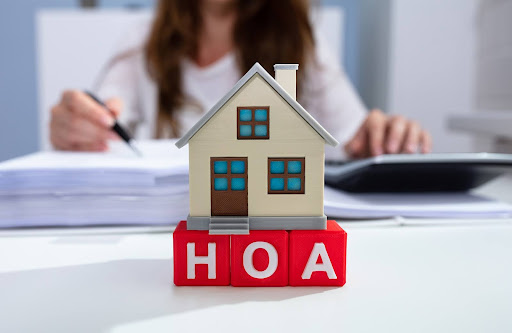An HOA special assessment can be a useful financial tool for a homeowners association. However, it is something that associations should charge with seriousness and frequently.
What Is an HOA Special Assessment?
A special assessment is an extra fee that a homeowners association may charge in addition to the regular dues that members already pay. In an HOA setting, homeowners pay regular dues to fund the community’s expenses. These dues are calculated based on the annual budget, which includes anticipated expenses for the year.
There are instances, though, wherein a homeowners association special assessment may be necessary. In such instances, the HOA board will issue a notice letting homeowners know they must pay an extra fee.
The need for a special assessment will depend on the specific circumstances of an HOA. More often than not, it stems from a budget deficit due to the board’s incorrect anticipated costs or many delinquent homeowners. Sometimes, it can arise from unforeseen expenses, such as roof repairs brought on by an uninsured natural disaster. An association may also charge a special assessment to cover the cost of upgrading or adding an amenity.
The Importance of HOA Special Assessments
Special assessments play an important role in an HOA community. They provide an additional source of income for the association and can help the HOA in times of crisis. They prevent the association from falling into financial ruin.
Without special assessments, the HOA board would struggle to seek additional funding. Amenities that require immediate upgrades or repairs will remain inoperational. Certain expenses would have to be cut, resulting in a decline in the quality of life in the community. Before long, homeowners will notice the negative impact of insufficient funding.
Of course, apart from special assessments, the HOA board can also seek funding through a loan, provided governing documents permit this route. A loan still needs to be paid back – and with interest. This would mean raising regular dues by a significant amount to satisfy the loan.
Special assessments provide the association with a way to secure more funds in a pinch. While they are undoubtedly crucial, homeowners should not worry too much. With a competent board, sound financial management, and properly funded reserves, homeowners won’t need to pay special assessments very often.
Can All HOAs Charge a Special Assessment?

Two things determine whether or not an HOA can charge a special assessment: state laws and the HOA’s governing documents. More often than not, though, associations do have this ability.
Both homeowners and board members should read through their governing documents carefully. The CC&Rs, in particular, outline the conditions that an HOA must meet to levy special assessments. For instance, there may be notice requirements to follow.
Typically, the CC&Rs use vague language when discussing the conditions and requirements surrounding special assessments. This intentionally gives boards broader power when it comes to charging the fee.
HOA Special Assessment Limit
Apart from the authority to charge a special assessment, state laws and governing documents may also contain limitations. For example, in California, Civil Code §5605(b) requires an association to seek approval from most members before levying a special assessment that exceeds 5% of the budgeted gross expenses. Anything below that, though, does not require a vote.
Similar limitations exist in other states, too. Moreover, an association’s governing documents may also contain special provisions that restrict the power of the board to levy an HOA special assessment. This is to prevent the board from charging unreasonable assessments. It also works to keep the board in check and exercise financial control.
How Often Should an HOA Levy Special Assessments?
In general, a homeowners association should rarely levy special assessments. If the board is competent and manages the HOA’s finances properly, there would be no need to charge special assessments often or at all.
Homeowners associations should budget for large projects, improvements, and emergencies. They should do this as part of their annual budget planning process. Boards should ensure that their operating and reserve funds contain enough money to cover all expenses. This would make it unnecessary to charge special assessments regularly.
Boards should also remember that not all homeowners have the financial means to pay the assessment in one go. If the assessment is too expensive, boards should consider spreading payment terms over several months. This would minimize homeowners’ financial burden while maintaining a consistent flow of revenue.
If an HOA charges special assessments often, it might signal an incompetent board or mismanagement. Homeowners can investigate by requesting to view the association’s financial records and asking the board questions about the assessment. It is best to consult an HOA manager or attorney when in doubt.
Penalties for Failing to Pay the HOA Special Assessment
Like regular dues, nonpayment of special assessments can lead to certain penalties. The exact penalties can vary depending on state laws and the governing documents. However, they typically cover the following:
- Late fees or interest;
- Temporary suspension of member privileges (such as access to amenities and facilities, voting power, etc.);
- A suit in small claims court;
- Attachment of a lien on a homeowner’s property and/or,
- Foreclosure
While not all homeowners associations can foreclose on a lien arising from special assessments, some have this ability. As such, a homeowner can lose property ownership if they fail to settle their assessments with the HOA.
The Bottom Line
An HOA special assessment can be a way for an association to secure additional funding. Associations, though, should exercise proper budgeting and financial management to avoid levying special assessments. If a special assessment is necessary, boards should follow due process as provided by state laws and the governing documents. This way, they can avoid exposing the association to potential liability.
Navigating the ins and outs of special assessments can come as a challenge. Let First Equity be your guide. Call us today at 650.349.7233 or contact us online to learn more!

